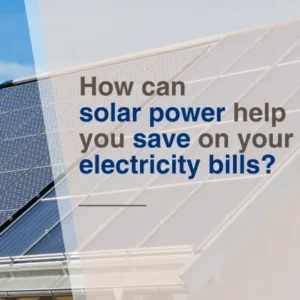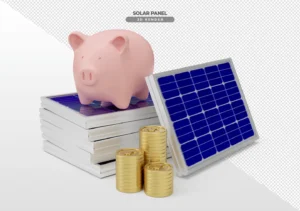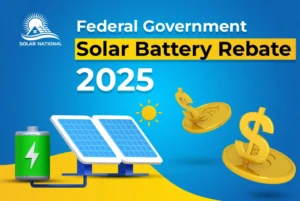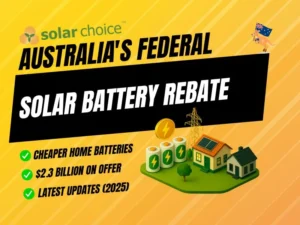The Clean Energy Council (CEC) serves as Australia’s primary organization overseeing operations related to renewable energy. By choosing a solar installer accredited by the Clean Energy Council, you can expect a high-quality experience.
These approved solar installers adhere to all standards set by the Clean Energy Council and practice sustainability within the industry.
To obtain accreditation, individuals must undergo various assessments and complete relevant training modules before their application is accepted. This process ensures that only qualified installers receive recognition for providing exceptional solar services.
Curious about the accreditation process and how the Clean Energy Council upholds industry standards?
This article will delve into the entire accreditation system. Keep reading.
What is a Clean Energy Council-Approved Solar Installer?
A Clean Energy Council-approved solar installer has received accreditation from the CEC to install solar panels and batteries.
Under the regulation of the Australian Competition and Consumer Commission (ACCC), the Clean Energy Council ensures that solar installers, designers, and retailers adhere to best practices in the industry. As a non-profit organization, the Clean Energy Council advocates for sustainable practices across Australia.
It is the leading body in the nation, comprising over 600 member businesses within the industry. Recognized businesses and individuals by the CEC demonstrate their knowledge of best practices and commitment to delivering services that comply with national regulations.
The Clean Energy Council mandates that solar installers obtain proper accreditation, which allows them to prove their skills and knowledge in installing solar systems, battery storage systems, and related technologies.
The same requirement applies to CEC-accredited retailers. The CEC program aims to hold approved solar retailers accountable while establishing industry standards. All Clean Energy Council-approved solar retailers must adhere to a specific code of conduct, and failure to comply may result in the loss of their approval or further action from the Clean Energy Council.
Ultimately, the council ensures that all recognized businesses and individuals adhere to ethical conduct and sustainability, which is crucial for the growth and efficiency of the Australian solar industry, allowing customers to benefit from solar energy.
How is CEC Approval Different from Accreditation?
The CEC provides only one form of approval to installers: accreditation. Therefore, a CEC approval for installers is equivalent to CEC accreditation. Accreditation is granted only to individuals, while retailers receive CEC endorsement through approval. Thus, a CEC-approved solar retailer adheres to the CEC’s code of conduct.
Choosing an installer without CEC accreditation may result in ineligibility for government rebates, particularly at the federal level, making solar system design and installation potentially costly.
The CEC accreditation for installers represents an individual qualification. Therefore, reputable solar companies, like Nectr, partner with CEC-accredited installers.
There are numerous benefits to working with an accredited installer.
First, you can trust that they comply with industry standards for solar installation. These professionals provide transparent, high-quality services with a customer-focused approach.
They can offer essential technical information on operating and maintaining your solar systems or batteries. CEC-accredited installers also provide high-quality maintenance services to ensure your solar systems or batteries function smoothly.
To benefit from government programs, such as the Small Scale Technology Certificates (STCs), consumers must seek products designed and installed by CEC-accredited individuals; otherwise, they won’t qualify for STCs. This requirement ensures consumers uphold best practices in the industry.
Additionally, accredited individuals enjoy several benefits from the council, including:
- Eligibility for government incentives and rebates, such as the small scale technology certificate
- Access to the council’s support line for solar and storage-related technical advice
- Availability of toolbox talks, webinars, and resources focused on industry best practices
- Updates on changes in industry practices and council guidelines
- Information on the council’s inspection guidelines for different products
- Recognition as a CEC-accredited installer on the council’s website
- Participation in the installer reference group for discussions with government and industry regulators
- Contribution to advocating for best practices in the solar industry
- Opportunities to provide feedback on solar industry guidelines to the standard committee
How Do Installers Get Approved?
To gain CEC accreditation, individuals must first complete the necessary training related to the type of accreditation they are applying for. Various training organizations across the country offer the required continuous professional development and learning support.
Types of accreditation include:
- GC design
- GC install
- GC design and install
- SPS design
- SPS install
- SPS design and install
Once training is complete, installers can apply for accreditation by submitting specific documents, including:
- Certifications confirming their training
- A public liability insurance policy with a minimum coverage of $5 million
- An electrical license if applying for grid-connected installations or battery storage
- A certificate for safely working at heights completed within the last six years (multiple units are needed for SPS or grid-connected installation).
After submitting the application with all relevant documents, the Clean Energy Council will review it.
Upon approval, the installer receives provisional accreditation.
They then have 30 days to complete an online assessment from the council to demonstrate their industry knowledge and processes.
After completing the assessment, they will receive an accreditation number.
If they applied for design-only accreditation, the solar designer becomes a Clean Energy Council-accredited installer after passing the online assessments.
However, if they opted for Install Only or Design and Install accreditation, they must complete a series of practical installation assessments within three months.
After three months, the provisional accreditation will expire, necessitating a repeat of all steps.
The practical assessment allows the Clean Energy Council to evaluate the installer’s competence in installing solar or storage systems. They must submit the required documentation to prove their ability to install solar or battery systems successfully.
To transition to fully accredited CEC installer status, individuals with Design Only provisional accreditation can submit an upgrade application after completing their online assessments.
Similarly, those with Install Only or Design and Install provisional accreditation can upgrade to full CEC accreditation by submitting the necessary application and payment after completing online and practical assessments. Once accepted, the individual will be fully accredited.
It is important to note that accreditation is valid for only one year. Installers must renew their CEC accreditation annually.
For renewal, installers need to earn 100 training points, which are divided into Elective and Core categories.
This ensures that installers maintain Australian standards in the solar and storage industry and have the necessary knowledge to work effectively in the field.
Individuals can also apply for additional accreditation to design or install other systems. The process for obtaining additional accreditation follows the same steps outlined above.






